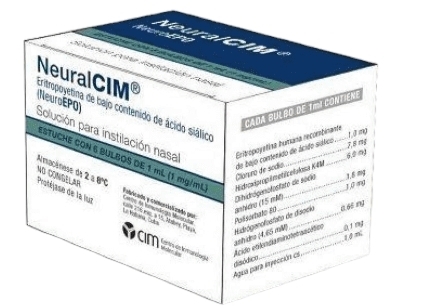Alzheimer's Disease. Treatment and Rehabilitation in Cuba
Alzheimer’s disease is a slowly progressing neurodegenerative disorder that leads to the loss of cognitive functions and the development of dementia. Early detection allows for timely intervention, which can significantly improve the patient’s quality of life in the later stages of the
Common Early Symptoms:
Memory loss, difficulties with reasoning, and confusion regarding time and place are very common early signs. It is important to correctly recognize these, along with changes in speech, judgment, and behavior, in order to enable an early diagnosis.
Treatment of early and moderate stages of Alzheimer's disease
Read more about the drug NeuralCIM (Cuba) at the link
General information about the disease:
- disease of the elderly (over 65 years)
- acquired disease, develops gradually and imperceptibly
- hereditary (genetic) predisposition
- There are different forms of dementia depending on the underlying cause, concomitant diseases and the state of cognitive function before the onset of the disease
Symptoms and stages of AD
Initial stage
- memory lapses for recent events, while patients remember old events well
- emotional disorders: anxiety, indifference
- disturbances in orientation on the terrain
- difficulties in finding objects and things in a familiar environment when performing daily tasks
At the next stage, cognitive disorders progress
- the patient has difficulty choosing words, long pauses in speech, incoherent speech
- the patient is unable to make daily decisions
- refusal to communicate with people
In the late stage of AD, the patient has the following symptoms
- changes (degradation) of personality
- disorientation in time and place
- failure to recognize relatives and close acquaintances
- deterioration of long-term memory
- inability to move independentlyIn severe dementia, the patient cannot take care of himself and is completely dependent on family members, relatives and acquaintances.
Currently, there are no treatment protocols that can cure AD (dementia), but there are successful methods that can slow down the progression of the disease, improve the quality of life of the patient and his family members.
The International Neurological Center Ciren, located in Havana, Cuba, offers a program of restorative neurology for patients with Alzheimer's disease, which consists of multifactorial, intensive and individual therapy based on the principles of neuroplasticity. The peculiarity of the program is the use of a unique Cuban drug NeuralSIM (NeuroEpo) in patients with early and moderate stages of dementia in Alzheimer's disease.
General information about the program
- The first stage - upon arrival at Ciren, the patient undergoes an assessment week, during which the degree of neurological impairment, the severity and areas of the identified damage, the general clinical condition and its consequences in the current state are determined, as well as the recovery possibilities that can be achieved and the necessary time that must be spent, with the help of the Neurological Recovery Program of CIREN clinic.
Based on the results of this assessment, the goals to be achieved will be determined and an individual rehabilitation plan for the patient will be developed
- The second stage is a cycle of multifactorial and intensive neurological treatment lasting 28 days.
- neuro-restorative treatment
- drug therapy based on the drug NeuralSIM
- work with a psychologist
- use of biophysical stimulation methods
- intensive neuro rehabilitation
- physical exercises
- defectology (occupational therapy)
- ECNI (non-invasive brain stimulation), a painless treatment method designed to stimulate specific parts of the brain in order to modulate its functioning
Benefits of Neurological Recovery for Alzheimer's Disease in Cuba
- drug treatment with NeuralSIM
- minimum course 28 days
- intensive rehabilitation
- multidisciplinary approach
- unique methods
- affordable prices
The cost of the program can be requested at the link


